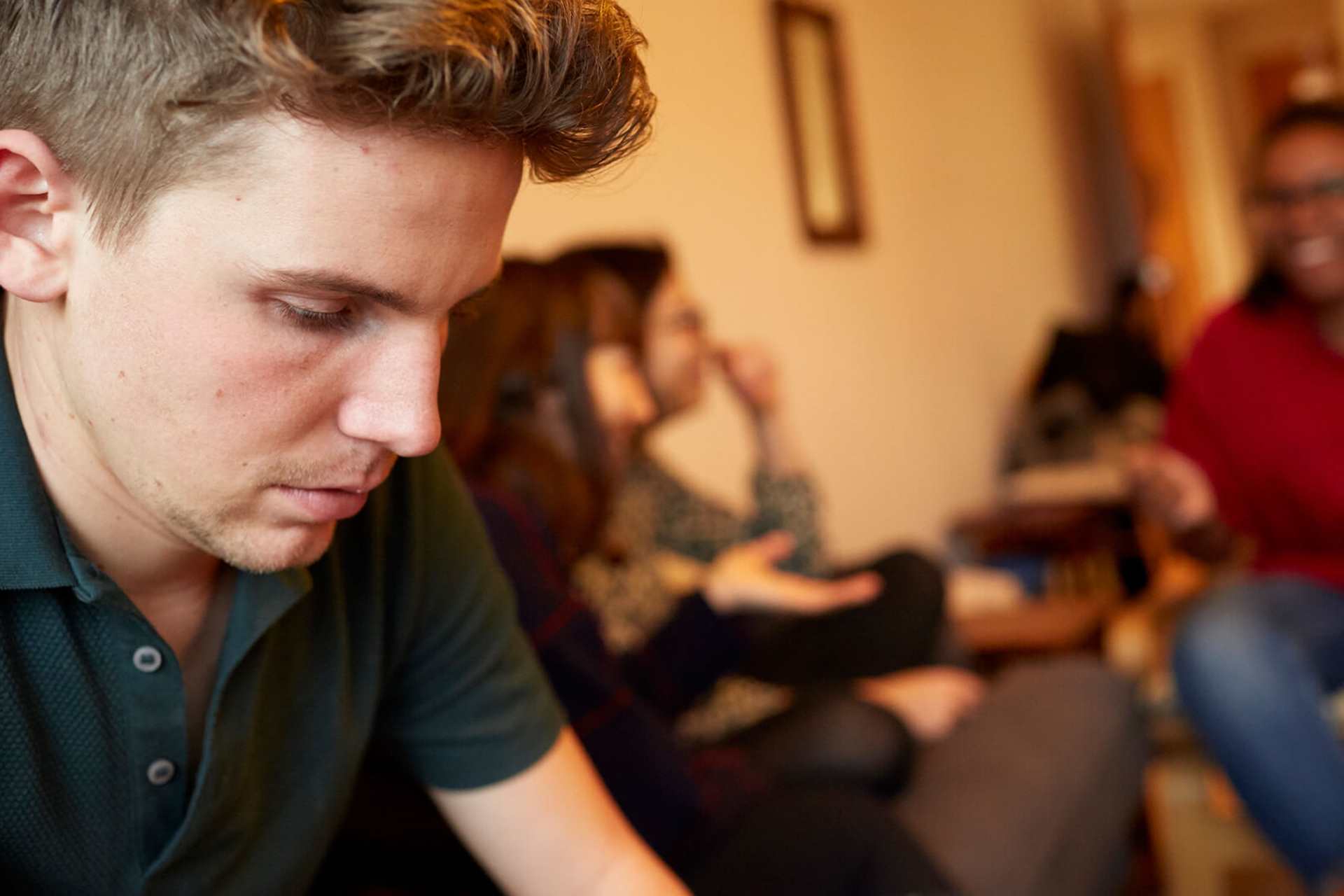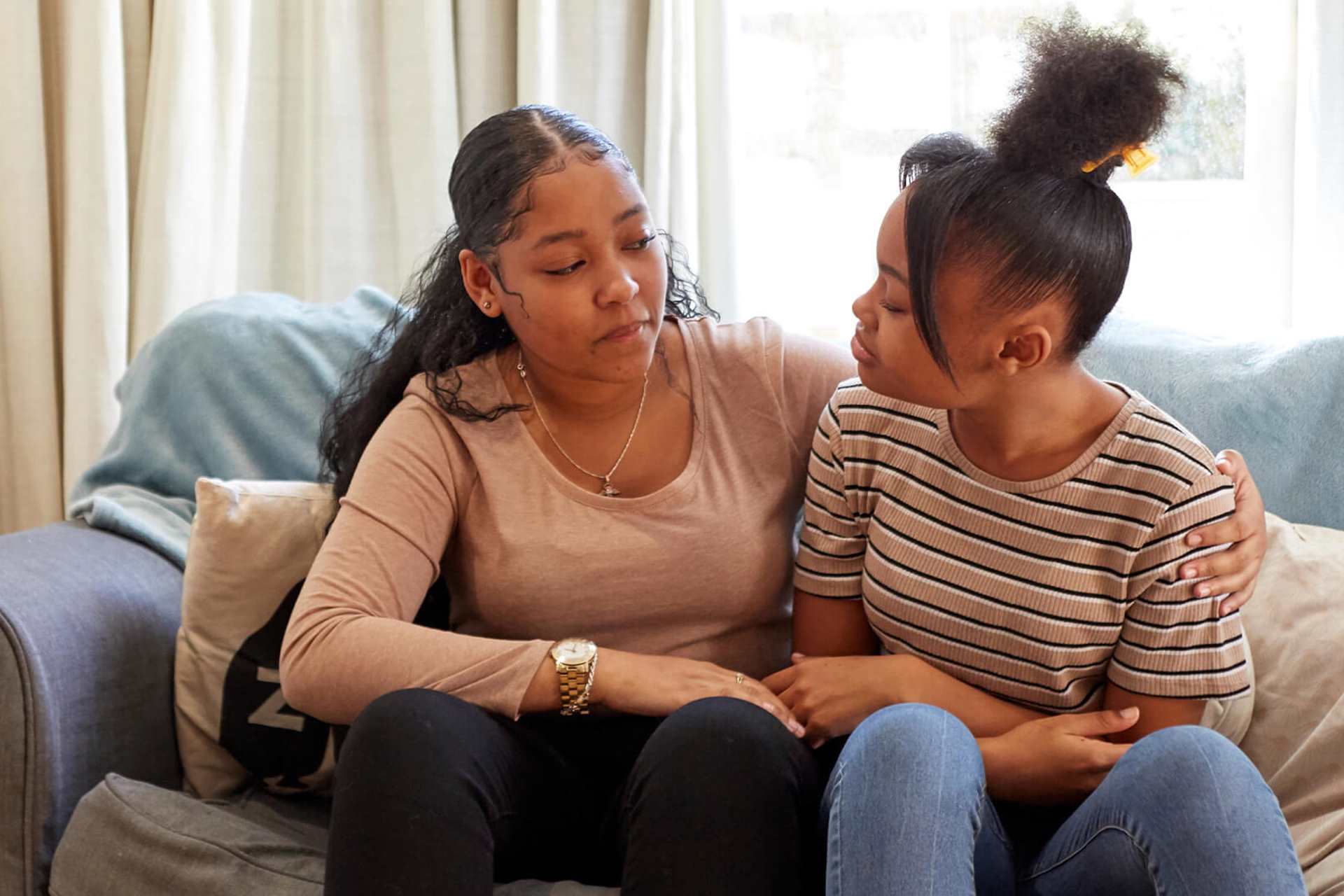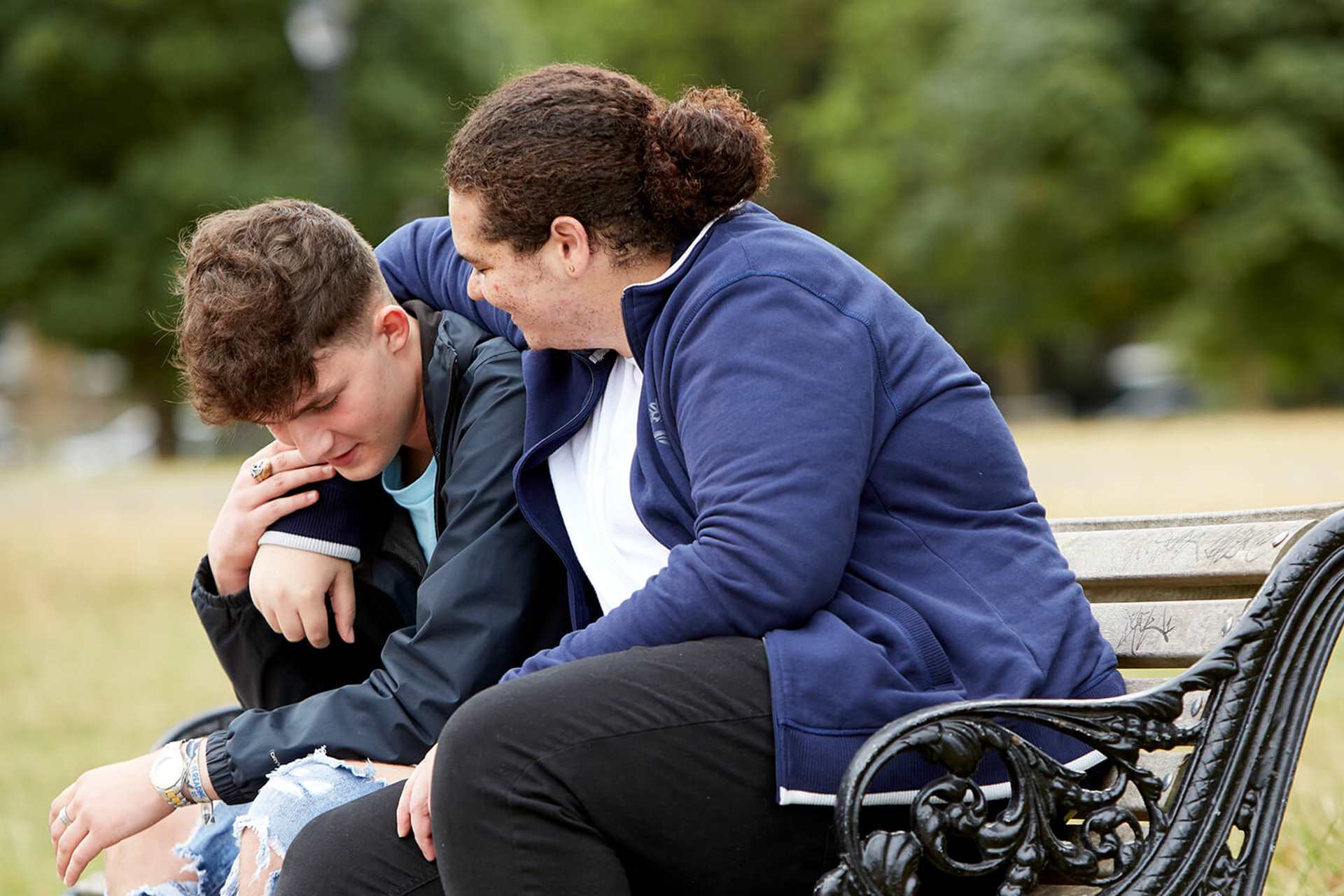Topics mentioned: self-harm
About: Self-harm is still often misunderstood. Lucas shares ten things he wishes people knew about it.
Self-harm is poorly understood by the public and some professionals. Luckily, more understanding and people opening up the conversation is changing that. I am slowly learning what support is available and how opening up to friends I trust makes life easier.
Here are ten things I wish people knew about self-harm:
1) It’s okay to talk about it and it takes a lot of courage
There is still an unfortunate stigma around self-harm but it’s nothing to be ashamed of. It’s important you open up the conversation and tell those closest to you, so they can be aware and be there to support you. The more understanding there is, the less stigma there is. If someone opens up about self-harm to you, it will have taken a lot of courage, and often means they trust you.
The conversation with men about mental health needs to open up more, so we can move away from this ‘man up’ culture.
2) Boys and men can be affected by it too
There can be many stereotypes around self-harm, one of which is that it only affects women and girls. But it’s important to remember that boys are affected too. The conversation with men about mental health needs to open up more, so we can move away from this ‘man up’ culture. This is especially true when it comes to self-harm.
3) It is so important for wounds to be tended to
Sometimes when people self-harm they need to physically tend to what happens, which could involve going to A&E, a GP surgery or a walk-in centre. This can be a worrying time, so if it’s something you need to do, it can help to take a friend or family member so they can support you.
4) There is help out there and you can recover
If you are struggling with self-harm, please know that there is help out there for you. Speaking to a school nurse or GP can be a great first step, and they can signpost you to the right support.
If you are struggling with self-harm, please know that there is help out there for you.
5) It’s a way of coping
When thoughts become overwhelming, self-harm is often the only way someone thinks they can cope. It’s not a choice someone makes. Recovery is possible with the right support and guidance, but this can take time.
6) It won’t hold you back from the jobs you want to do
There is a myth that things like self-harm could hold you back from jobs - particularly in jobs like healthcare and social work - but this is not true. When someone has recovered form self-ham, all jobs are possible.
7) How to support your family member or friend
When you find out someone you care about is self-harming it can be difficult to know what to do or say. Learning to spot the signs can help and remembering that there are different ways in which people self-harm and different reasons why they do it is important. Sometimes you just need to let the person know that you care about them and that you’re there to listen.
Sometimes you just need to let the person know that you care about them and that you’re there to listen.
8) Relapsing is not a failure
Like a lot of things relating to our health, relapses can happen. They should not be seen as failures. Remember you can seek appropriate advice and support and get back on the road to recovery.
9) It’s not ‘attention seeking’
People self-harm for many different reasons. Some people find it hard to explain why they do it. Some people see self-harm as attention-seeking behaviour, but often it’s a way for people to let out feelings that are hard to explain or control. Many people who self-harm try their best to hide it and not talk about it.
10) We should not have to hide our scars
I go back to point one: you should not be ashamed of self-harm. While it is a good idea to cover healing wounds with clean dressings, people should not feel like they need to cover scars if they don’t want to - it’s a part of your story.
Overall, the most important thing which I hope everyone knows is you don't have to go through this alone.
You don't have to go through this alone.
More information and advice
We have tips and advice to help you find the support you need. Take a look at our guides.
Where to get help
However you're feeling, there are people who can help you if you are struggling. Here are some services that can support you.
-
Calm Harm
A free app providing support and strategies to help you resist or manage the urge to self-harm.
Can be downloaded from Google Play or App Store.
-
Childline
If you’re under 19 you can confidentially call, chat online or email about any problem big or small.
Sign up for a free Childline locker (real name or email address not needed) to use their free 1-2-1 counsellor chat and email support service.
Can provide a BSL interpreter if you are deaf or hearing-impaired.
Hosts online message boards where you can share your experiences, have fun and get support from other young people in similar situations.
- Opening times:
- 24/7






